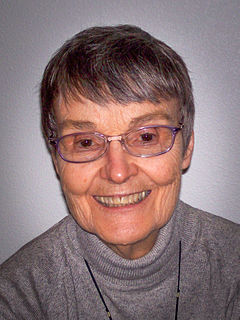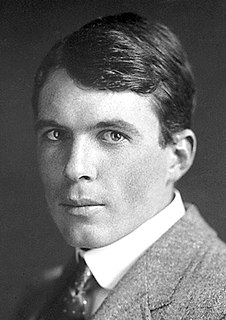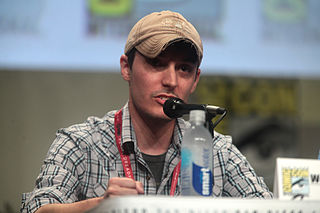A Quote by Craig Venter
One important part of scientific training is that scientists learn the boundaries, the safety issues, how to properly deal with and dispose of chemicals and reagents.
Related Quotes
I'm a skeptic. ...Global Warming it's become a new religion. You're not supposed to be against Global Warming. You have basically no choice. And I tell you how many scientists support that. But the number of scientists is not important. The only thing that's important is if the scientists are correct; that's the important part.
The need for general scientific understanding by the public has never been larger, and the penalty for scientific illiteracy never harsher. Lack of scientific fundamentals causes people to make foolish decisions about issues such as the toxicity of chemicals, the efficacy of medicines, the changes in the global climate.
It seems to me that there is a good deal of ballyhoo about scientific method. I venture to think that the people who talk most about it are the people who do least about it. Scientific method is what working scientists do, not what other people or even they themselves may say about it. No working scientist, when he plans an experiment in the laboratory, asks himself whether he is being properly scientific, nor is he interested in whatever method he may be using as method.
The traditional boundaries between various fields of science are rapidly disappearing and what is more important science does not know any national borders. The scientists of the world are forming an invisible network with a very free flow of scientific information - a freedom accepted by the countries of the world irrespective of political systems or religions. ... Great care must be taken that the scientific network is utilized only for scientific purposes - if it gets involved in political questions it loses its special status and utility as a nonpolitical force for development.
You have to learn to deal with your own, for want of a better word, insecurities, fears. They don't go away. And that's normal. It's human. You don't ever really want to lose that. What you want to do is learn to manage it and to work with yourself. But there's a part of you that has anticipation and fear. And so the important thing to know is that there's nothing wrong with that and that that's normal. You have to learn how to deal with it, certainly, but it doesn't keep you from doing it. And that doesn't go away ever.
You are not exposed to one chemical at a time, but a complex mixture of chemicals that changes day by day, hour by hour, depending on where you are and the environment you are in... In the United States alone it is estimated that over 72,000 different chemicals are used regularly. Two thousand five hundred new chemicals are introduced annually-and of these, only 15 are partially tested for their safety. Not one of the chemicals in use today has been adequately tested for these intergenerational effects that are initiated in the womb.
Self-censorship has become a part of me. I think because we live in a place where community is very important, family is very important, you feel the weight of how people look at you. Even though I might seem very modern and very liberated, I still have a lot of issues to deal with. I'm scared of how people look at me.
I feel very strongly indeed that a Cambridge education for our scientists should include some contact with the humanistic side. The gift of expression is important to them as scientists; the best research is wasted when it is extremely difficult to discover what it is all about ... It is even more important when scientists are called upon to play their part in the world of affairs, as is happening to an increasing extent.
We have to deal with issues like inequality, we have deal with issues of economic dislocation, we have to deal with peoples fears that their children won't do as well as they have. The more aggressively and effectively we deal with those issues, the less those fears may channel themselves into counter-productive approaches that pit people against each other.




































